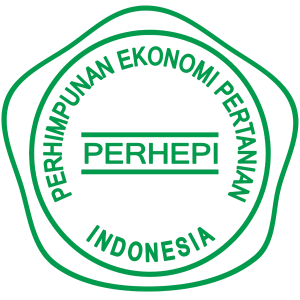Application of Integrated Pest Control Models Nilaparvata Lugens (Stal) (Homoptera: Delphacidae) In Rice Plants Outside of Sidoarjo Mud Impact Area
Keywords:
natural enemies, brown planthoppers, IPCAbstract
This study aims to apply an integrated pest control model (IPC) of brown planthoppers (bph) on rice against the presence of natural enemies in maintaining rice productivity. The research was conducted in Sentul Village, Tanggulangin District, Sidoarjo, East Java Province from September 2020 to December 2020. The research was conducted using a survey method. The research location was selected using the purposive sampling method, namely the area with the highest percentage of attacks, having been attacked at least 3 times the planting season, planting Inpari-4 rice varieties, and reported as brown planthoppers endemic areas in Sentul Village, Tanggulangin District, Sidoarjo. The results showed population abundance, percentage level of attack, lowest brown planthoppers attack intensity with IPC treatment and the highest with conventional control pedals, while the composition and abundance of brown planthoppers natural enemies was dominated by the family, Tetragnathidae and Coccinellidae (Coccinela repanda).Downloads
Published
Issue
Section
License
Copyright (c) 2021 Agricultural Science

This work is licensed under a Creative Commons Attribution-ShareAlike 4.0 International License.















